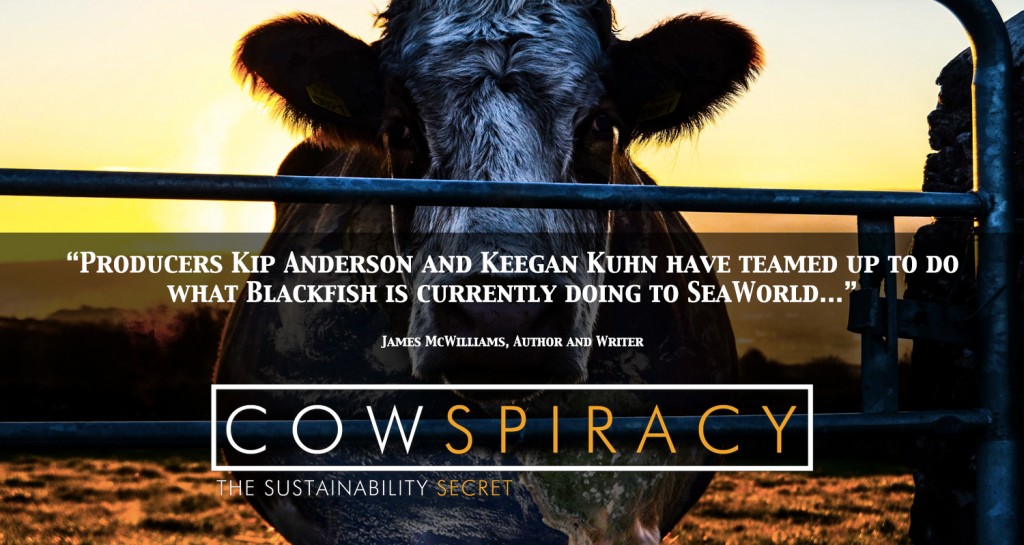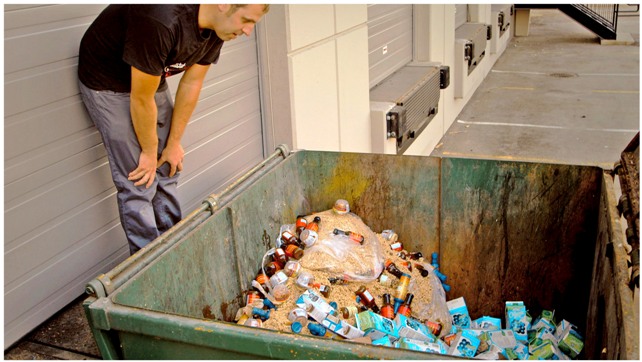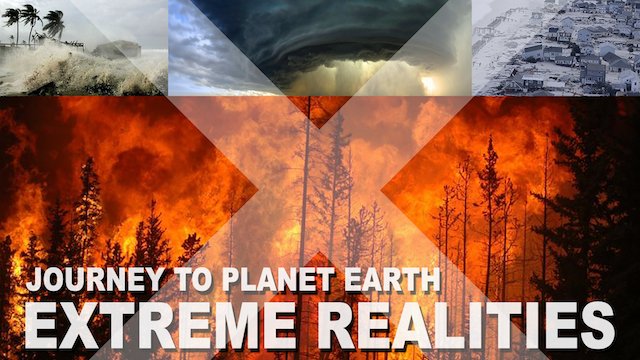 (GREAT BARRINGTON, Mass.) – Eight award-winning environmental films will be shown free the weekend of April 11-12 at the Mahaiwe and the Triplex in Great Barrington as part of the 5th annual Project Native Film Festival. On Saturday, April 11, there will be a special screening of “Just Eat It: A food waste story,” at the Mahaiwe, with the directors and subjects of the film on hand for a Q & A following the film.
(GREAT BARRINGTON, Mass.) – Eight award-winning environmental films will be shown free the weekend of April 11-12 at the Mahaiwe and the Triplex in Great Barrington as part of the 5th annual Project Native Film Festival. On Saturday, April 11, there will be a special screening of “Just Eat It: A food waste story,” at the Mahaiwe, with the directors and subjects of the film on hand for a Q & A following the film.
On Sunday, April 12, seven award-winning environmental films will be shown at the Triplex Cinema, kicking off with a Family Program featuring “Deepo – A Fish Story” and “Watermelon Magic,” both presented in 3D, beginning at 10am.
Other films scheduled for Sunday include “Extreme Realities,” “Open Sesame: The Story of Seeds,” “Oil & Water,” “Angel Azul,” “Cowspiracy” and “The Human Experiment.”
“We expect this festival to be the biggest and best yet. If people don’t leave the theater more educated, inspired or motivated to act then we are doing something wrong.” says Karen Lyness LeBlanc, Education and Outreach Coordinator for Project Native. Fortunately, festival history has proven otherwise. Following a screening of the film Bag It (at Project Native’s 1st Film Festival in 2011), a group of community members gathered to discuss banning single-use plastic bags in Great Barrington. A committee was formed and after a lot of hard work a ban was put into effect on March 1, 2014.
“These films stir up emotions and we hope these emotional responses propel people to act,” says LeBlanc. If people leave a film inspired to do something, festival organizers want to help connect those individuals with a local organization working on similar issues. With this in mind local non-profit organizations are invited to participate as underwriters. Representatives from underwriting organizations are invited to introduce the films and set up a table in the lobby to share information about their organization.
The following underwriting organizations will be present at the festival: CHP, B.E.A.T. (Berkshire Environmental Action Team), Berkshire Grown, Berkshire Node of 350.org, Flying Cloud Institute and Berkshire Voters for Animals.
The staff and board of Project Native believe no one should be excluded from this educational event for financial reasons. For this reason, since its inception, the festival has been offered free of charge. This would not be possible without support from the Dr. Robert C. and Tina Sohn Foundation and official sponsors: Berkshire Coop Market, GoodWorks Insurance, Kenver Ltd., and Bobbie Hallig.
SPECIAL EVENT
A Cull-inary Cocktail Party…turning waste to taste
Mahaiwe Performing Arts Center – Saturday, April 11th, 5:30 – 6:30pm
Project Native will host a “Cull-inary Cocktail Party” to raise awareness about the issue of food waste in our country. This event will take place on the stage of the Mahaiwe Performing Arts Center prior to a community screening of the film “Just Eat It.” Jen Rustemeyer and Grant Baldwin, filmmakers and subjects of the award-winning film “Just Eat It: A food waste story,” will be in attendance.
Hors d’oeuvres creatively crafted by Chef Michael Ballon of Castle Street Café utilizing culled produce from Berkshire Coop, Berkshire Organics and Hawthorne Valley Farm Store will be served, along with complimentary wine and Big Elm Beer. Reservations are required. Tickets are $40 for Project Native Members, $50 for Non-members. For tickets, call 413-274-3433.
Mahaiwe Performing Arts Center – Saturday, April 11th, 7 – 9pm
Just Eat It: A food waste story (2014)
FILMMAKERS IN ATTENDANCE
This event is FREE.
Could you quit grocery shopping cold turkey and survive only on foods that would otherwise be thrown away? Just Eat It is the story of two people who did. We all love food. As a society, we devour countless cooking shows, culinary magazines and foodie blogs. So how could we possibly be throwing nearly 50% of it in the trash?
Filmmakers and food lovers Jen and Grant dive into the issue of waste from farm, through retail, all the way to the back of their own fridge. After catching a glimpse of the billions of dollars of good food that is tossed each year in North America, they pledge to quit grocery shopping cold turkey and survive only on foods that would otherwise be thrown away. In a nation where one in 10 people is food insecure, the images they capture of squandered groceries are both shocking and strangely compelling. But as Grant’s addictive personality turns full tilt towards food rescue, the ‘thrill of the find’ has unexpected consequences.
Featuring interviews with TED lecturer, author and activist Tristram Stuart and acclaimed author Jonathan Bloom, Just Eat It looks at our systemic obsession with expiration dates, perfect produce and portion sizes, and reveals the core of this seemingly insignificant issue that is having devastating consequences around the globe. Just Eat It brings farmers, retailers, inspiring organizations, and consumers to the table in a cinematic story that is equal parts education and delicious entertainment.
Following the film there will be a question and answer period with Jen and Grant.
To reserve your FREE tickets to the screening of Just Eat It call the Mahaiwe Performing Arts Center Box Office (413) 528-0100.
Triplex Cinema – Sunday, April 12th. Films run from 10am – 9pm.
Family Program in 3D!
Two short films that will delight children and adults alike. Arrive early, seating is limited.
Open Sesame: The Story of Seeds (2014)
One of the world’s most precious resources is at risk. This timely and emotionally moving documentary illuminates what is at stake and what can be done to protect the source of nearly all our food: SEEDS. Seeds provide the basis for everything from fabric, to food, to fuels. Seeds are as essential to life as the air we breathe or water we drink…but given far less attention.
According to the FAO (Food and Agriculture Organization of the UN), approximately 90 percent of the fruit and vegetable varieties that existed 100 years ago no longer exist today. Heritage grain is near extinction. Seeds that were lovingly nurtured over decades or even hundreds of years have been lost forever. Maintaining seed biodiversity allows us to breed new varieties that are resistant to pests or thrive in temperature extremes. This is essential in a changing climate.
Just pick up any newspaper or watch any television news report and it becomes evident that unprecedented extreme weather events such as severe drought and heat waves, more intense hurricanes, increased tornado and wildfire activity, and crippling blizzards are leaving a trail of death and destruction throughout the world.
In the wake of these disasters, we ask ourselves these fundamental questions: Are these merely weather events that happen once in a hundred years – or are they early warning signals of a new reality – a new normal – a tipping point pushing our planet towards an environmental cliff? And can we stop this from happening?
Extreme Realities investigates the link between severe weather, climate change, and threats to our national security.
Oil & Water (2013)
Most people are well aware of the continuing destruction of the Amazon rainforest, but relatively few people know about the devastation beneath this rich ecosystem in Ecuador. From the early 70s to the 90s, oil companies contaminated vast swaths of pristine jungle by slopping billions of gallons of toxic waste into unlined pits. Oil & Water portrays this environmental disaster from the unique perspectives of young people at both ends of the spectrum – Hugo Lucitante, from the indigenous Cofan tribe in Ecuador, and David Poritz, from Amherst, Massachusetts.
This engaging doc follows the two teenagers with their feet in both worlds as their paths intersect over the next six years. While still in college, David fights an uphill battle to establish a “fair trade” certification system for oil production. Meanwhile, Hugo gets married to Sadie, a friend from his American high school, and the couple moves back and forth between his Cofan lands and the U.S. to save up for college. Oil & Water is a sobering look at the enormous pressures David and Hugo face, but it also demonstrates how two determined people can make a positive difference in the world.
Angel Azul (2014)
Angel Azul explores the artistic journey of Jason deCaires Taylor, an innovative artist who combines creativity with an important environmental solution: the creation of artificial coral reefs from statues he’s cast from live models. When algae overtake the reefs however, experts provide the facts about the perilous situation coral reefs currently face and the solutions necessary to save them. Peter Coyote generously provides insightful narration that leaves viewers pondering our connection to this valuable and beautiful ecosystem.
Cowspiracy (2014)
A groundbreaking documentary following intrepid filmmaker Kip Andersen as he uncovers the most destructive industry facing the planet today – and investigates why the world’s leading environmental organizations are too afraid to talk about it.
Animal agriculture is the leading cause of deforestation, water consumption and pollution, is responsible for more greenhouse gases than the transportation industry, and is a primary driver of rainforest destruction, species extinction, habitat loss, topsoil erosion, ocean “dead zones,” and virtually every other environmental ill. Yet it goes on, almost entirely unchallenged.
As Andersen approaches leaders in the environmental movement, he increasingly uncovers what appears to be an intentional refusal to discuss the issue of animal agriculture, while industry whistleblowers and watchdogs warn him of the risks to his freedom and even his life if he dares to persist.
The Human Experiment (2013)
The Human Experiment lifts the veil on the shocking reality that thousands of untested chemicals are in our everyday products, our homes and inside of us. Simultaneously, the prevalence of many diseases continues to rise. From Oscar® winner Sean Penn and Emmy® winning journalists Dana Nachman and Don Hardy, The Human Experiment tells the personal stories of people who believe their lives have been affected by chemicals and takes viewers to the front lines as activists go head-to-head with the powerful and well-funded chemical industry. These activists bring to light a corrupt system that’s been hidden from consumers… until now.
ABOUT PROJECT NATIVE
Project Native is a non-profit environmental education organization committed to growing native plants, maintaining a native butterfly house and wildlife sanctuary, and promoting stewardship of the local landscape.


